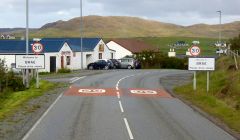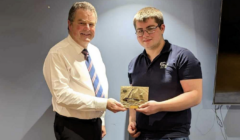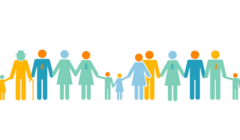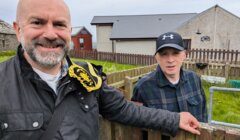Community / Pandemic has made poverty a ‘bigger issue for more people’
THE IMPACT of the coronavirus pandemic on the local community was reiterated at a council meeting on Monday, with members told that it has likely driven wider inequalities in the isles.
Shetland Islands Council’s (SIC) development director Neil Grant said the pandemic has “probably made poverty a bigger issue for more people”.
He told a meeting of the council’s development committee that all of this needs to be addressed if “we’re to be a cohesive, successful community” – with more resources possibly needed to tackle this.
The big question, Grant added, was where do those resources come from. “It all needs to be achieved in a balanced budget,” he warned.
Shetland has not been immune to the economic and social impacts of the pandemic, which in some cases is a perfect storm of employment disruption, isolation and health worries.
The uptake of universal credit benefits in Shetland also saw a dramatic rise last year.
In November the local foodbank said that the number of children receiving support had risen by more than 50 per cent in the 12 months prior, with more food packages overall also being distributed.
Recent figures, though, showed that Shetland’s furlough rate had reduced to one of the lowest in the country, suggesting that less strict restrictions has helped the local economy.
The discussion came up after a report was presented to members on the amount of funding given out in 2019/20 under a scheme to support organisations directly reducing poverty for local households.
During that year the Shetland Community Bike Project, which provides supported employment and skills development to vulnerable unemployed people, received £25,000, while the local Citizens Advice Bureau (CAB) was given £18,000.
Councillor Allison Duncan said workload has been increasing at the local foodbank, and he asked in light of the grant awards whether the council is “winning the battle to reduce poverty in Shetland”.
Become a member of Shetland News
Community planning and development manager Vaila Simpson replied by saying there were a number of indicators which are monitored each year through the Shetland Partnership.
Speaking about the potential need for more resources in tackling poverty, Grant said: “We will need to form an opinion of where resources are required and indeed whether we need to do more in certain areas.”
Committee chairman councillor Alastair Cooper said the SIC will find the funds if the business case justifies it – but the challenge is actually getting hold of the money.
The work of both the Shetland Community Bike Project and the CAB was praised, but members were keen to hear more about the outcomes for the former – with councillors set to receive a briefing note on the bike project’s activity.
David Grieve of Shetland Foodbank, meanwhile, said on Tuesday that demand has remained “relatively steady” throughout the last year.
“We are still distributing around 80 food parcels per month, however there is also support given to families facing hunger from other agencies,” he said.
“Food for the Way at the Methodist church in Lerwick is still active as is the foodbank operating out of the Brae Gospel Hall.
“The SIC are also distributing food to around 60 families twice per month. Overall that suggests a significant increase in food poverty in Shetland.”
Become a member of Shetland News
Shetland News is asking its readers to consider paying for membership to get additional perks:
- Removal of third-party ads;
- Bookmark posts to read later;
- Exclusive curated weekly newsletter;
- Hide membership messages;
- Comments open for discussion.
If you appreciate what we do and feel strongly about impartial local journalism, then please become a member of Shetland News by either making a single payment, or setting up a monthly, quarterly or yearly subscription.














































































